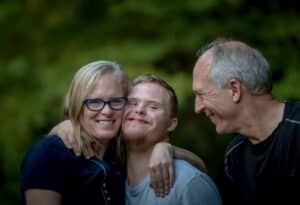Participation in a music therapy program is an increasingly common part of substance and mental health recovery. That’s true because this form of treatment provides a variety of common benefits. The list of these benefits includes support for emotional healing.
Think you may benefit from the healing power of music therapy? At Northpoint Colorado, we often include this option in our customized treatment plans. With our help, you can make important strides toward emotional wellness. Contact us today at 888.231.1281 to find out more.
How Music Therapy Can Help Change Your Mood
Every year, scientists gain a better understanding of music’s effects on human emotions. Recent research shows that the right kind of music can evoke feelings that include:
- Joy
- Amusement
- Relaxation
- Triumph
- Anger
- Beauty
- Fear
- Defiance
Some of these feelings are commonly labeled as positive. Others can potentially have a negative effect on you. However, balanced access to a full range of emotions is a recognized indicator of well-being.
These facts help explain the potential for emotional healing through music therapy. With guidance from your therapist, you can learn to alter your daily mood in healthy ways.
How Emotional Healing Through Music Therapy Works
Changing your brain chemistry
Why does music have such a profound effect on your emotions? Some of music therapy’s benefits are chemical. The act of listening to music can boost your brain levels of two important mood enhancers:
- Serotonin
- Dopamine
In addition, it can boost your endorphin levels.
Connecting to your emotions
Music therapy can also help you connect to your emotions. Why is this important? People affected by substance and mental health issues often think the worst of themselves. In music therapy, you get help breaking out of the cycle of negative thinking. Some of this help comes from your therapist. You can also benefit from your interactions with other people in your program.
Exploring your emotions
With guidance from your therapist, music can help you explore your emotions. That includes things you felt during past experiences. It also includes things you feel today in everyday life. Studies show that, with music as the medium, you tend to feel more comfortable exploring current and past emotional states.
Learning to express yourself
Problems with self-expression are common among people enrolled in rehab programs. That’s especially true when it comes to verbal expression. But music therapy gives you a way to express yourself in nonverbal ways. This not only promotes improvement in your ability to communicate. In addition, it provides further support for emotional healing.
Sharing music with others
As a rule, music therapy is a group activity. When you listen to music with others, you tend to feel more connected to them. The same is true when you do such things as write songs together and perform together. The bonds you create with others are another example of music therapy’s benefits for emotional wellness.
The Role of Self-Healing Through Music Therapy
Your therapist plays a major role in fostering emotional healing through music therapy. However, much of the work is left to you. That’s true whether you’re listening to music, writing songs, or taking part in other therapy activities.
There’s tremendous value to self-healing through music therapy. By actively participating in your recovery, you may find yourself feeling more empowered. In turn, this positive emotional state can further enhance your therapy experience.
Contact Northpoint Colorado Today to Reap the Benefits of Music Therapy
The emotional benefits of music are well-documented. In music therapy, these benefits are leveraged to support your substance and mental health recovery. Your therapist is essential in helping you make the most of this therapy. However, you also do much of the work yourself.
Want to learn more about using music therapy for emotional healing? Talk to the recovery professionals at Northpoint Colorado. We’re also there when you’re ready to make music therapy part of your customized rehab plan. Just call us today 888.231.1281 or use our online contact form.




